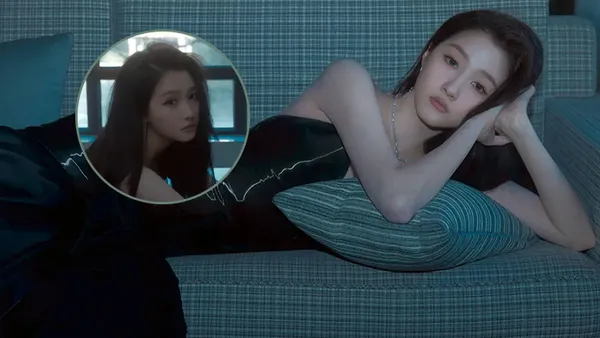the short video industry is developing rapidly, including Weibo, Zipai, Jinri Toutiao and other short video platforms. Users upload clips of movies and TV series to the platform, and even sign up for different accounts to upload. If users upload copyrighted clips of movies and TV series from others, they may face the risk of infringement.
original title: uploading clips of movies and TV series will also infringe copyright at present, the short video industry is developing rapidly and was once considered to be another outlet for the development of the Internet. Kuaishou, Jinri Toutiao, second shot and other companies have emerged as a new force, which rely on a large number of short videos uploaded by users to attract users, including a large number of clips of movies and TV dramas. Users upload clips of movies and TV series, or even register for different accounts to upload. If users upload copyrighted clips of movies and TV series from others, they may face the risk of infringement. In this regard, the network platform should also bear certain audit obligations. < strong > upload users should bear tort liability < / strong > at present, major platforms are laying out the field of short videos one after another. As an important part of short video, film and TV drama clips have also been widely spread on short video sharing sites. According to relevant data in 2016, Wechat ranked first in the ranking of average daily usage time of mobile APP users with about 2 hours, followed by Jinri Toutiao with about 76 minutes, in which 80% of user activity was occupied by short videos. Finally, the entire Weibo social system with Weibo, second shot and continuous broadcasting as the core, and most of Weibo's data are also concentrated in the field of short videos. The wide spread of film and TV drama clips in short videos will play a role in the promotion of movies and TV dramas to a certain extent, but the phenomenon of disguised infringement of other people's copyright is also increasing. according to Article 10 of China's copyright Law, the right of information network dissemination enjoyed by copyright owners is protected by law. The right of information network dissemination, that is, the right to provide works to the public by wired or wireless means, so that the public can obtain the right to work at the time and place of their personal choice. Unless otherwise provided by laws and administrative regulations, anyone who provides the works, performances, sound recordings and video recordings of others to the public through the information network shall obtain the permission of the right holder and pay remuneration. According to the provisions of paragraph 1 of Article 48 of the copyright Law, if the copyright is infringed, the right holder has the right to require the infringer to bear civil liability such as stopping the infringement, eliminating the influence, making an apology and compensating for losses. generally speaking, Internet users continuously upload copyrighted clips of movies and TV dramas to the network sharing platform without authorization, which directly infringes on the copyright owner's right of information dissemination on the network. At the same time, Internet users generally put wonderful or very bad clips of movies and TV dramas on social network platforms. If users put a single wonderful clip on the network based on the mentality of sharing, it will play a good role in promoting and promoting the film and TV drama to a certain extent. If users put a single or a small number of very bad clips on the Internet based on the complaining mentality, accompanied by certain critical words, they may be regarded as legitimate art comments. < strong > the network platform may infringe indirectly < / strong > Article 36 of China's Tort liability Law stipulates that Internet users and Internet service providers shall bear tort liability if they use the network to infringe upon the civil rights and interests of others. If the network service provider knows that the network user uses its network service to infringe upon the civil rights and interests of others and fails to take necessary measures, it shall bear joint and several liability with the network user. Article 23 of the regulations on the Protection of the right of Information Network dissemination stipulates that the network service provider provides search or link services for the service object and, after receiving the notice from the right holder, whoever disconnects the link with the infringing work, performance, sound recording or video recording in accordance with the provisions of these regulations shall not be liable for compensation; however, if he knows or should have known about the infringement of the linked work, performance, sound recording or video recording, he shall bear joint tort liability. if a short video sharing website uploads infringing videos directly without authorization, it undoubtedly constitutes a direct infringement and should bear direct tort liability. Nowadays, the vast majority of short video sharing websites play the role of tools for the storage and dissemination of video information for users, and the uploading, browsing and downloading of all video information on the site are directly operated by users. Therefore, considering that the infringement comes from users, short video sharing sites rarely infringe directly. However, in practice, because it is difficult to find infringing users and the personal compensation ability of users is weak, the right holders generally will not sue the direct infringing users, but will look for a network platform with strong economic strength to protect their rights. the network platform is required to bear indirect tort liability. at the same time, in order to avoid the heavy duty of care to the network service providers and hinder the network development space, the "safe haven" rule has also been introduced into the regulations on the Protection of the right of Information Network Communication. The so-called "safe haven" rule means that when a copyright infringement case occurs, when the Internet service provider only provides space services and is not told what content should be deleted, it will not bear tort liability if it does not know or should know subjectively. However, when the right holder informs the network platform that there is infringing content, the network platform should delete the infringing content in time. but in reality, in view of the phenomenon that users upload repeatedly and frequently, and when the network platform only performs the notification to delete the link, the right holder can only mediate constantly under the notification deletion rule, which is also unfair to the protection of the rights and interests of the right holder. Therefore, it is suggested that legislation and judicature should impose stricter restrictions on such situations. In view of users uploading infringing content many times, or even changing different account uploads, the network platform should have the obligation to close such accounts; for the same work, the network platform has the obligation to block all fragments of the work and prevent and control uploading. At present, the country implements the network real name system, for users to upload infringing works, when the right holder requests to provide the infringing user real name information to the network platform, the network platform should have the obligation to provide the infringing user real name information, otherwise bear joint and several liability. Only in this way can we really return to the legislative intention and essence of the "safe haven" policy, instead of making the "safe haven" just a mere formality and a "shield" to evade responsibility, and the right holders will no longer always mediate between "notice deletion". < strong > there are limits to the fair use of film and TV drama clips < / strong > Article 22 of the copyright Law stipulates 12 cases of fair use, as long as they meet the circumstances of fair use, they can be used without permission or remuneration to the copyright owner. Article 6 of the regulations on the Protection of the right of Information Network dissemination also stipulates that in six cases, the provision of works through the information network constitutes a reasonable use. Therefore, to judge whether the act of providing film and TV drama clips provided by short video sharing websites constitutes fair use, we should first examine whether this behavior belongs to one of the fair use acts stipulated in Article 6 of the regulations on the Protection of the right of Information Network dissemination. Article 6, item 1, of the regulations on the Protection of the right of Information Network dissemination stipulates that in order to introduce or comment on a work or to illustrate a problem, a published work is properly quoted in a work provided to the public, which constitutes a reasonable use of the work. According to the above provisions, the citation behavior that constitutes fair use may include two situations, one is to introduce or comment on the cited work, and the other is to explain a problem by quoting the work. to determine whether a user constitutes fair use, it should also be evaluated according to whether it conforms to the "three-step test". If a user cuts a segment of a complete copyrighted video work enjoyed by others, and then uploads all, most or substantive content to the network platform, it will have a "substantial substitution" consequence for the right holder, and will no longer meet the "fair use" infringement exemption. short video sharing website can be vividly compared to a platform for the circulation and dissemination of short video works or film and TV drama clips. The wider the audience, the greater the value. The interests of network users are mainly manifested in obtaining the required information from the Internet platform, which is also the greatest value of the Internet to users. At the same time, the interests and interests of network users, network platforms and copyright owners should be balanced. For the malicious cutting of film and TV drama clips and the substantial dissemination of other people's film and TV drama works to make a profit in disguise, it should be cracked down and stopped in order to create a good network copyright environment.
Edit: mary
 白羊座
白羊座 金牛座
金牛座 双子座
双子座 巨蟹座
巨蟹座 狮子座
狮子座 处女座
处女座 天秤座
天秤座 天蝎座
天蝎座 射手座
射手座 摩羯座
摩羯座 水瓶座
水瓶座 双鱼座
双鱼座










